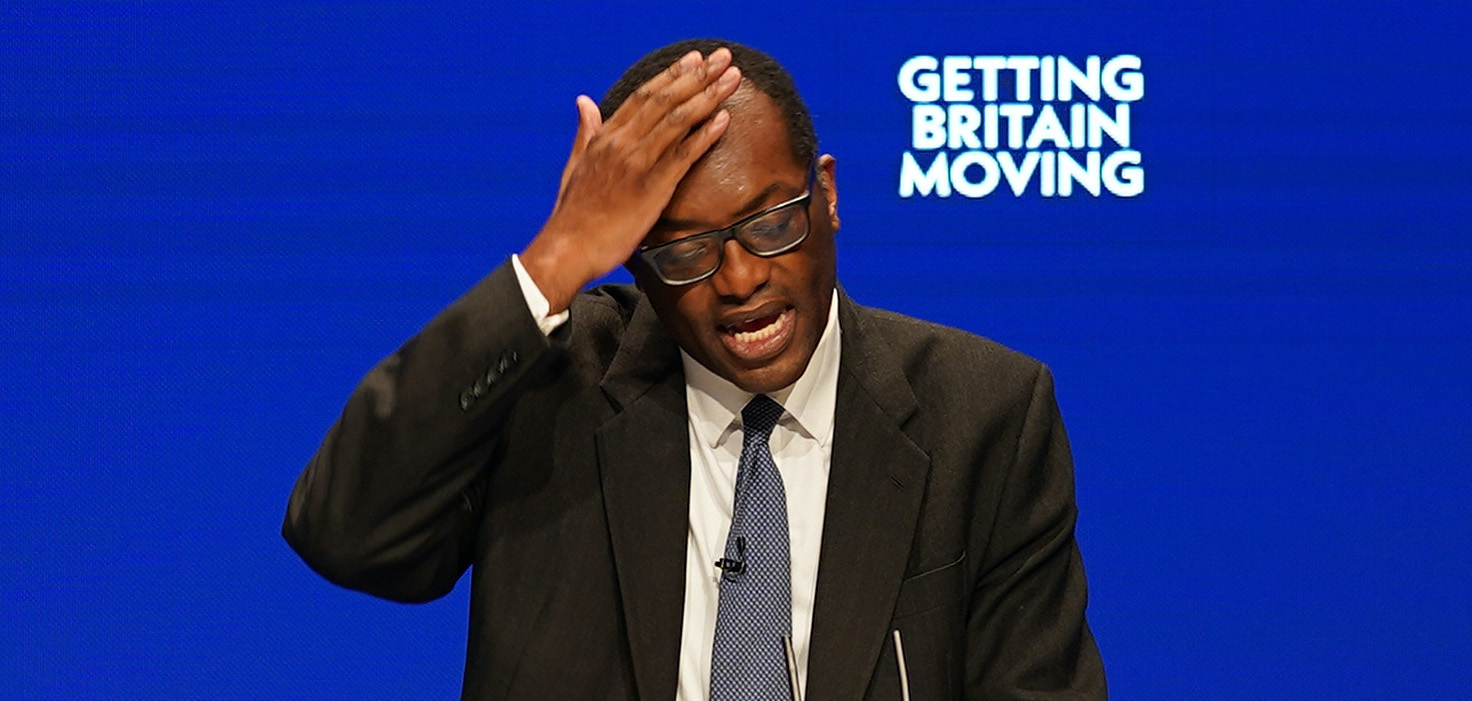Birmingham
“We get it, we are listening”, Kwasi Kwarteng announced after he decided not to cut the taxes of Britain’s highest earners this morning. Recognising, perhaps, that his future as chancellor was looking less than certain, he issued this masterclass non-apology.
Following interventions from Michael Gove, Julian Smith, and Grant Schapps, the retreat simply raised the question: can Kwarteng make policies stick without the approval of Michael Gove? Or do we, instead, believe Jacob Rees-Mogg, who minutes before Kwarteng delivered his speech, claimed that the U-turn “has been a sound and fury that signifies nothing”?
There was not too much to the speech itself. Kwarteng had no announcements to make, only a bellowed summary of the Truss government’s economic strategy to date.
Here was the new era, described in exactly the same terms Kwarteng used during his “mini-budget” on September 23rd. The Government’s approach was about “economic growth”; the Government would “focus relentlessly on economic growth”; we need a government “committed to economic growth”. The 70-year high tax burden was mentioned three times. Kwarteng gloatingly praised the government’s “monumental” energy package. This government was: unhesitating! Unashamed! Unyielding!
The reception to the speech in the auditorium was lukewarm. The fascination of this Chancellor is that he is a complicated, somewhat anxious man, terribly insulated from reality, who aspires to a streamlined, relaxed confidence that is beyond him. Kwarteng, wrote Sasha Swire in her Diary of an MPs Wife, is “essentially an academic”.
And an above-average academic at that. He speaks five languages. He writes Latin poetry. He authors respected histories. Before he became a minister under Theresa May, Kwarteng gave cursory attention to day-to-day political grind, instead dwelling at higher altitudes. Indifferent to his colleagues and the public, he mused about factory conditions in China, the role of economic crises in history, and the sterility of debating whether the British “empire was a good or bad thing”. This Kwarteng has been variously described as “bright”, “very bright” and “just exceptionally clever”.
Kwarteng the academic, cautious and cerebral is no more. Instead, he follows in the path of Margaret Thatcher. All the chaos Kwarteng caused in recent weeks has been a tribute act. In Thatcher’s Trial: Six Months That Defined A Leader, his short book about 1981, Thatcher’s worst year in office, chaos — dire poll ratings, furious economists, and unpopular budgets — is considered a necessary trial. By 1983, Thatcher had a historic majority. Kwarteng thought he had a blueprint.
It was not only that this speech was preceded by this morning’s U-turn. It was not merely that he felt the need to yell the whole thing, as if he were stopping a cab. It was, above all, the Freudian slip. “I know the plan”, Kwarteng said of his mini-budget, “was only put forward 10 years ago — err, 10 days ago.” The nonchalant, bearish exterior was concealing a man who had experienced the last ten days as a kind of agony. As ten painful years.
A source who watched the Chancellor drink cocktails with bankers on the day of the ‘fiscal event’ told The Times that Kwarteng looked surprised by the reaction of the markets. “I think maybe he didn’t see it coming.” Did City financiers ever label Thatcher, as they reportedly have of Kwarteng, a “useful idiot”?
None of that was part of the plan. The Chancellor is an academic posing as an iron man. He has shed his greatest asset — thoughtfulness. Shouting his economic policies will not make them anymore credible, not to the City, and not to the public. There is no Falklands War coming to save him and Truss, as it did for Thatcher after 1981. “We really NEED to do things differently”, he roared. He already has. The likelihood is that Kwarteng will be back to writing books before he, or the country, can see if his different approach is as successful as Thatcher’s was.










Join the discussion
Join like minded readers that support our journalism by becoming a paid subscriber
To join the discussion in the comments, become a paid subscriber.
Join like minded readers that support our journalism, read unlimited articles and enjoy other subscriber-only benefits.
Subscribe